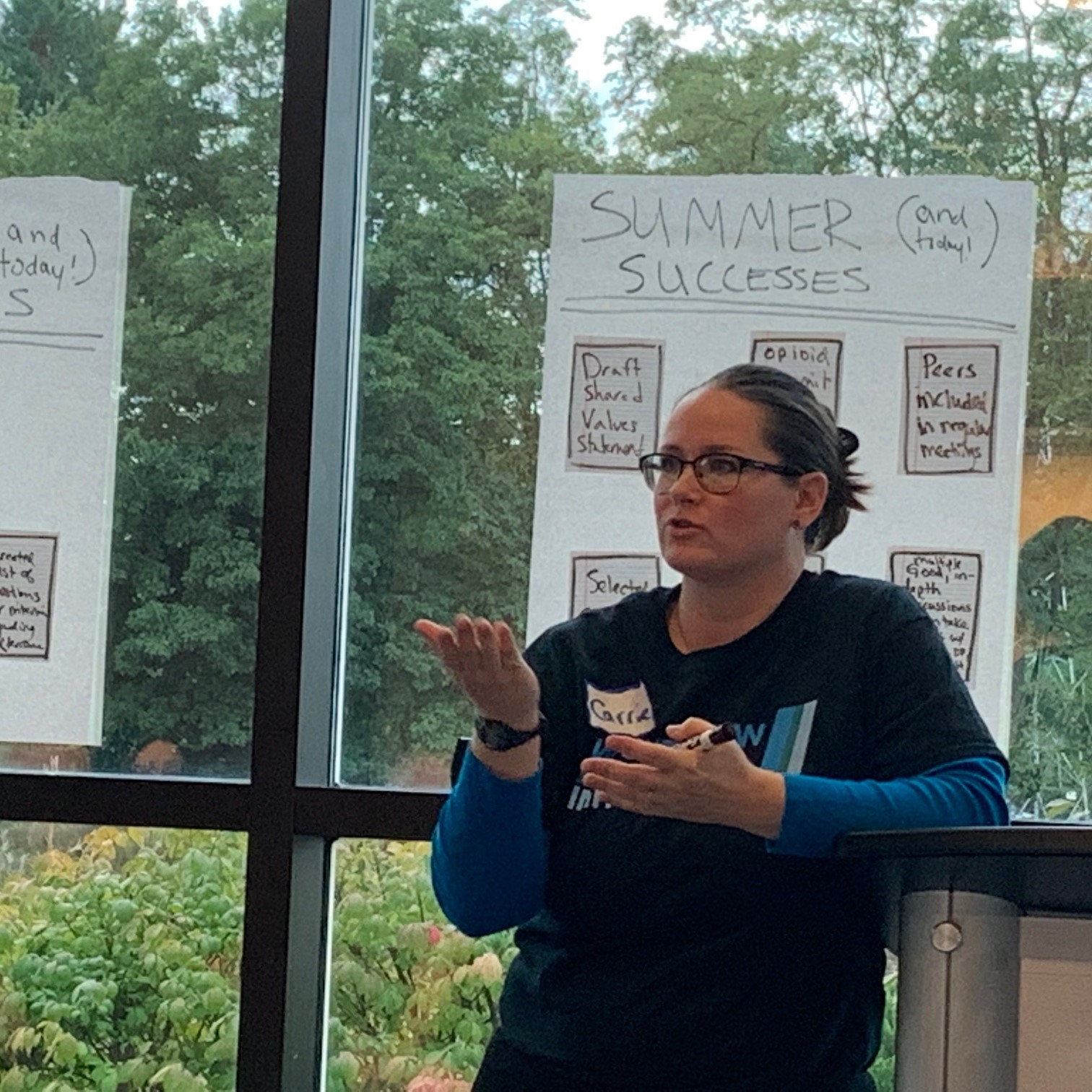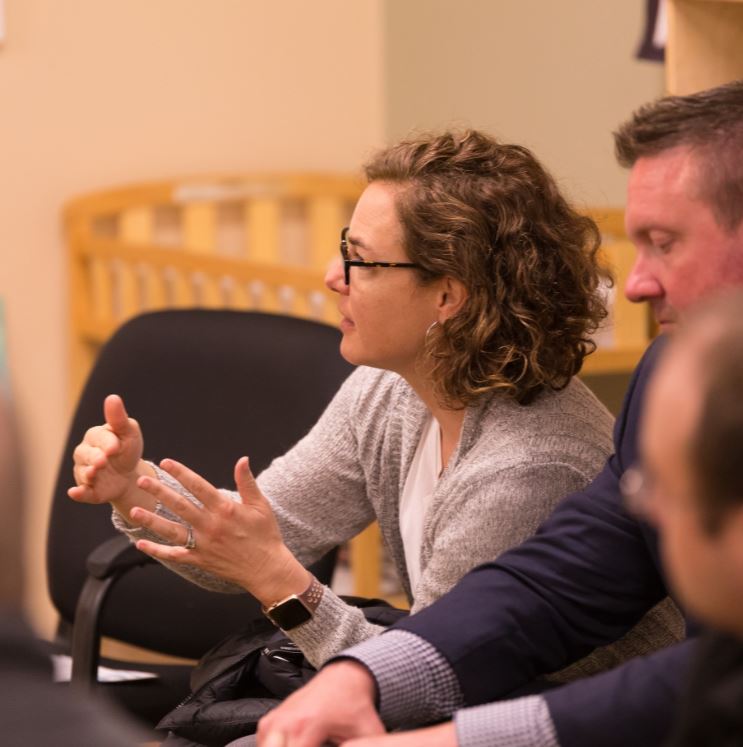The Center for Healthcare Research & Transformation (CHRT), an independent nonprofit organization housed at the University of Michigan, welcomes a new board of directors that includes representation from additional healthcare, business and policy organizations.
“We are thankful for the support and direction we have received from our two founding organizations, Blue Cross Blue Shield of Michigan and the University of Michigan,” says Marianne Udow-Phillips, director of CHRT. “Now, at our 10-year mark, we remain committed to providing objective, non-partisan information. Our new board enables us to offer healthcare and health policy research and insight to more organizations and to increase the impact of our work.”
CHRT’s board of directors includes:
John Z. Ayanian, MD, MPP, Director, Institute for Healthcare Policy and Innovation, University of Michigan. Ayanian is the inaugural director of the Institute for Healthcare Policy and Innovation at the University of Michigan (U-M), which includes over 475 faculty members from 15 schools and colleges at the university. He is the Alice Hamilton Professor of Medicine at the Medical School, professor of Health Management and Policy at the School of Public Health, and professor of Public Policy at the Gerald R. Ford School of Public Policy. He is a Fellow of the American College of Physicians and an elected member of the National Academy of Medicine.
Robert Casalou, President and CEO, St. Joseph Mercy Health System, Ann Arbor. Casalou is regional director of SJMHS, a five-hospital, multi-outpatient health organization. He is board chair of the Make-A- Wish Foundation of Michigan, a member of the American Heart Association Midwest Affiliate Board, a delegate to the American Hospital Association Regional Policy Board 5 and is a member of the Together Health Board and Integrated Health Associations (IHA) Board a multispecialty medical group located in Southeast Michigan.
Tony Denton, JD, MHA, Senior Vice President and Chief Operating Officer, University of Michigan Health System. Denton has served in a variety of leadership posts and has been chief operating officer since 2004. He is an active member on multiple UMHS senior leadership committees and has served on several community boards. At present, he serves on the Michigan Health and Hospital Association Board of Trustees, and is a member of the Washtenaw Health Initiative Steering and Finance Committees. He is also co-chair of the United Way Leadership Giving Campaign for Washtenaw County and co-chair of the University of Michigan’s United Way Campaign. Tony is serving as Chair of the CHRT Board for 2016-17.
Kevin J. Klobucar, Executive Vice President, Health Care Value, Blue Cross Blue Shield of Michigan. At Blue Cross, Klobucar is responsible for product development, provider contracting and network management, medical and pharmacy management, as well as wellness program and care management delivery across all lines of business. Klobucar is a member of the board of directors for Big Brothers Big Sisters of Livingston County, Greater Detroit Area Health Council and Michigan State University’s Eli Broad Alumni Board of Directors.
Francine Parker, Executive Director, UAW Retiree Medical Benefits Trust. The Trust is the largest nongovernment purchaser of retiree health care in the United States. Previously Parker served as president and chief executive officer of HAP and senior vice president of Insurance-Purchaser Relations for Henry Ford Health System. Parker is on the Board of Trustees for Dana VEBA, Bosch VEBA, Daimler VEBA, Mack VEBA, ACC VEBA and Siena Heights University; the Board of Directors of the Greater Detroit Area Health Council; and the Alliance for Health Reform Board of Directors (Washington DC).
Lynda Rossi, Executive Vice President, Strategy, Government and Public Affairs, Blue Cross Blue Shield of Michigan. Rossi oversees Corporate Strategy, Office of National Health Reform, Governmental Affairs and Public Policy, Corporate Communications, Blue Cross Blue Shield of Michigan Foundation, and Social Mission. Rossi is president of the Blue Cross Blue Shield of Michigan Foundation board of directors, and a board member for the Metropolitan Affairs Coalition and AmeriHealth Caritas Family of Companies.
Thomas L. Simmer, MD, Senior Vice President and Chief Medical Officer, Blue Cross Blue Shield of Michigan. Simmer oversees Blue Cross Blue Shield of Michigan’s medical policy, professional payment policies and national programs to improve quality, cost and access to medical services. He also provides leadership to the Michigan Quality Improvement Consortium, and is a member of the American Medical Association, Michigan State Medical Society and a Fellow of the American College of Physicians.
Terence A. Thomas, Co-Founder, Thomas Group Consulting, Inc. Thomas provides public affairs management consulting to public and private entities and interests. Previously, Thomas was chief advocacy and corporate responsibility officer at St. John Providence Health System.
Brent C. Williams, MD, MPH, Medical Director, University of Michigan Complex Care Management Program. Williams has developed clinical programs to improve care and decrease inappropriate health care expenses among high-utilizing patients with combined medical, mental health, substance abuse disorders, and/or poverty and homelessness. He serves on the Washtenaw Health Initiative Steering Committee, and is director of the U-M Medical School Global Health and Disparities Path of Excellence.
 In 2018, with support from U-M Poverty Solutions and the DMC Foundation, the Detroit Health Department worked with CHRT to develop a new fellowship program for front-line staff–one designed to build specific skills and knowledge that would positively impact public health service delivery in Detroit. Here, we delve into the details of this initiative, exploring its inception, goals, and the impact it has had on the city’s public health landscape.
In 2018, with support from U-M Poverty Solutions and the DMC Foundation, the Detroit Health Department worked with CHRT to develop a new fellowship program for front-line staff–one designed to build specific skills and knowledge that would positively impact public health service delivery in Detroit. Here, we delve into the details of this initiative, exploring its inception, goals, and the impact it has had on the city’s public health landscape.









 The
The  Since 2012,
Since 2012,  Prescription drug costs are the fastest growing component of total U.S. health care costs, with the increase in retail prescription drug spending (12%) outpacing overall health care spending (5%) in 2014 Spending on specialty drugs—which are used to treat complex, chronic medical conditions and typically require special handling, administration, and monitoring—is a significant component of drug spending, amounting to 22 percent of all drug costs in Michigan and 32 percent in the U.S. in 2014, according to a study published today by the Center for Healthcare Research & Transformation (CHRT).
Prescription drug costs are the fastest growing component of total U.S. health care costs, with the increase in retail prescription drug spending (12%) outpacing overall health care spending (5%) in 2014 Spending on specialty drugs—which are used to treat complex, chronic medical conditions and typically require special handling, administration, and monitoring—is a significant component of drug spending, amounting to 22 percent of all drug costs in Michigan and 32 percent in the U.S. in 2014, according to a study published today by the Center for Healthcare Research & Transformation (CHRT). A study released by the Center for Healthcare Research & Transformation (CHRT) shows that the ACA Medicaid expansion provided additional support to people who need substance use services—an increasing number of people in light of the opioid crisis.
A study released by the Center for Healthcare Research & Transformation (CHRT) shows that the ACA Medicaid expansion provided additional support to people who need substance use services—an increasing number of people in light of the opioid crisis.
 The Center for Healthcare Research and Transformation (CHRT) and
The Center for Healthcare Research and Transformation (CHRT) and